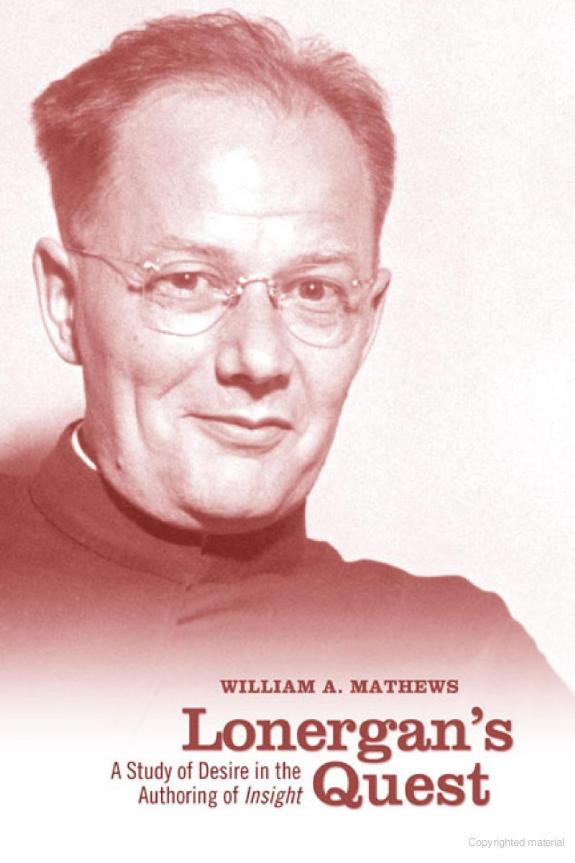
AnthonyFlood.com
Philosophy against Misosophy

Bias, Liberation, and Cosmopolis
Bernard J. F. Lonergan, S.J.
1. Practical Common Sense
In the drama of human living, human intelligence is not only artistic but practical. At first, there appears little to differentiate man from the beasts, for in primitive fruit-gathering cultures, hunger is linked to eating by a simple sequence of bodily movements. But primitive hunters take time out from hunting to make spears, and primitive fishers take time out from fishing to make nets. Neither spears nor nets in themselves are objects of desire. Still, with notable ingenuity and effort, they are fashioned because, for practical intelligence, desires are recurrent, labour is recurrent, and the comparatively brief time spent making spears or nets is amply compensated by the greater ease with which more game or fish is taken on an indefinite series of occasions.
Moreover, such an intervention of intelligence is itself recurrent. As products of human ingenuity, spears and nets illustrate not only the idea of the old mechanical arts but also the more recondite idea of modern technology. As pieces of material equipment, the same objects are initial instances of the idea of capital formation.
Now the history of manís material progress lies essentially in the expansion of these ideas. As inventions accumulate, they set problems calling for more inventions. The new inventions complement the old to suggest further improvements, to reveal fresh possibilities and, eventually, to call forth in turn the succession of mechanical and technological higher viewpoints that mark epochs in manís material progress.
Moreover, this advance of practical intelligence is registered not merely in memory and, later, in books, but more obviously in concrete products, in tools and buildings, in the ever increasing manifold of appurtenances of labourers, craftsmen, merchants, and carriers.
Thus, in correspondence with each stage in the development of practical intelligence, there is a measure and structure of capital formation, that is, of things produced and arranged not because they themselves are desired but because they expedite and accelerate the process of supplying the goods and services that wanted by consumers.
Again, in correspondence with each advance of practical intelligence, there is a technological obsolescence of capital equipment. The old shops still have their shelves and counters; the old machines may suffer no material or mechanical defect. But the new models produce better goods more efficiently; and trade now walks on different streets.
The concrete realization of the succession of new practical ideas does not take place without human co-operation.
It demands a division of labour and, at the same time, it defines the lines along which labour is divisible.
It invites men to specialize in the skilful use of particular tools and the expeditious performance of particular tasks.
It calls forth some economic system, some procedure that sets the balance between the production of consumer goods and new capital formation, some method that settles what quantities of what goods and service are to be supplied, some device for assigning tasks to individuals and for distributing among them the common product.
As technology evokes the economy, so the economy evokes the polity. Most men get ideas, but the ideas reside in different minds, and the different minds do not quite agree. Of itself, communication only reveals the disparity. What is wanted is persuasion, and the most effective persuader becomes a leader, a chief, a politician, a statesman.
For the problem of effective agreement is recurrent. Each step in the process of technological and economic development is an occasion on which minds differ, new insights have to be communicated, enthusiasm has to be roused, and a common decision must be reached.
Beyond the common sense of the labourer, the technician, the entrepreneur, there is the political specialization of common sense. Its task is to provide the catalyst that brings men of common sense together.
It is an incomplete accumulation of insights to be complemented and modified by the further insights that arise from the situation in hand.
It involves some understanding of industry and of commerce but its special field is dealing with men.
It has to discern when to push for full performance and when to compromise, when delay is wisdom and when it spells disaster, when widespread consent must be awaited and when action must be taken in spite of opposition.
It has to be able to command attention and to win confidence, to set forth concretely the essentials of a case, to make its own decisions and secure the agreement of others, to initiate and carry through some section of that seriation of social responses meeting social challenges that Arnold Toynbee in his Study of History has so lavishly and brilliantly illustrated.